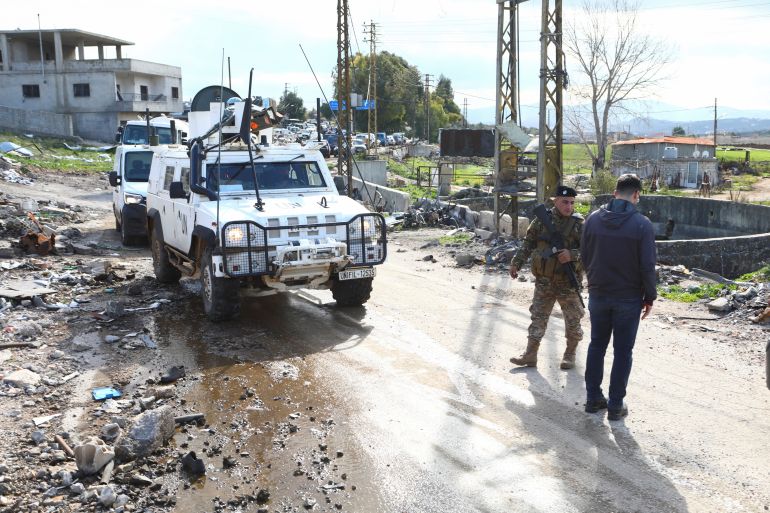UN Security Council votes to wind down UNIFIL mission in Lebanon after 2026
Amid US pressure, vote extends peacekeeping mission but then calls for ‘orderly and safe drawdown and withdrawal’.

Published On 28 Aug 202528 Aug 2025
The United Nations Security Council has voted to extend the UN peacekeeping mission in southern Lebanon until the end of 2026 but to then terminate the mission in an “orderly and safe drawdown and withdrawal” over the following year.
The unanimous vote on Thursday came just before the mandate for the UN Interim Force in Lebanon (UNIFIL) was due to expire on Sunday and as the United States and its close ally Israel have increasingly pushed for the mission’s termination.
Recommended Stories
list of 3 itemsend of list
UNIFIL was initially created to oversee the withdrawal of Israeli troops from southern Lebanon after Israel’s 1978 invasion, and its mandate has been renewed annually since then.
The mission was expanded after the 2006 war between Israel and Hezbollah with proponents saying it remains important to maintaining a demilitarised buffer between the two sides.
The approved resolution said UNIFIL will continue its operations until December 2026, and it would then begin withdrawing its 10,800 military and civilian personnel and equipment. That is to happen in consultation with the Lebanese government.
The resolution further aims to make the Lebanese government “the sole provider of security” in southern Lebanon north of the UN-drawn border with Israel, known as the Blue Line, while calling on Israel to withdraw its forces.
‘The last time’
The administration of US President Donald Trump has pushed for an end to UNIFIL since taking office in January and has already overseen cuts in US funding to the force.
Speaking after the vote, acting US Ambassador to the UN Dorothy Shea made clear the US had no plans to support a future extension of the mission.
Advertisement
“This will be the last time the United States will support an extension of UNIFIL,” she said.
Israel has long accused UNIFIL of failing to prevent threats posed by Hezbollah and has increasingly pushed for the end of its mission since cross-border fighting escalated in the wake of the October 7, 2023, Hamas-led attacks on Israel and the start of Israel’s war on Gaza.
Throughout its latest ground invasion of Lebanon, which began in October last year, Israel has been repeatedly accused of attacking UNIFIL positions and injuring peacekeepers.
Despite a November ceasefire, Israel has repeatedly struck targets in Lebanon and has maintained boots on the ground in some strategic positions.
The Rome Statute, which established the International Criminal Court in The Hague, states that the deliberate targeting of peacekeepers amounts to a war crime.
Israeli officials hailed the vote on Thursday.
“For a change, we have some good news coming from the UN,” said Danny Danon, Israel’s UN representative.
Push to disarm
Thursday’s vote came as the US has been pushing a plan along with Lebanon’s government to disarm Hezbollah. The group has rejected the prospect, citing Israel’s continued presence in the country.
The group did not immediately respond to the vote.
In a statement on Thursday, Lebanese Prime Minister Nawaf Salam welcomed the move.
Salam said the resolution “reiterates the call for Israel to withdraw its forces from the five sites it continues to occupy, and affirms the necessity of extending state authority over all its territory.”
In a statement ahead of the vote, UNIFIL spokesperson Andrea Tenenti questioned how UN Security Council Resolution 1701 could be implemented with Israeli forces still in Lebanon.
The resolution, passed in 2006, calls for the withdrawal of Hezbollah south of the Litani river, the disarmament of the group, and Israel’s full withdrawal from Lebanon’s sovereign territory.
“The commitment of the Lebanese government is there, but how can they be deployed everywhere in the south if the IDF [Israeli military] are still present in the south?” he said.
“So these are the things that are very difficult to comprehend.”
